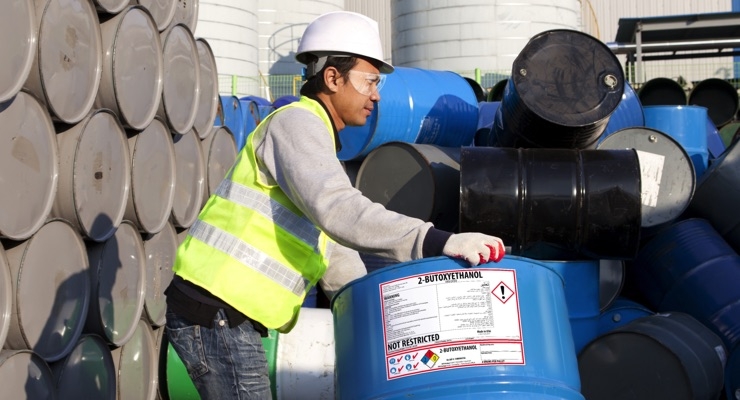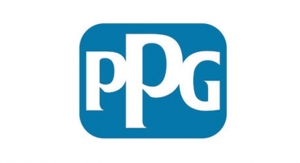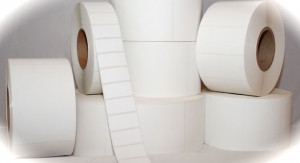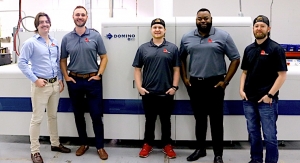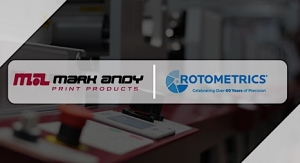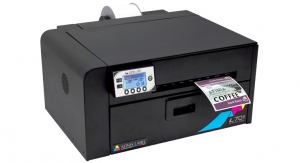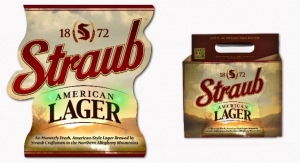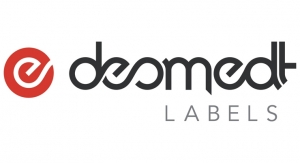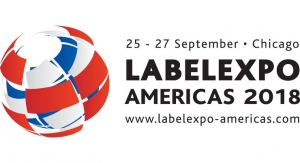11.19.18
Gulf States Label, a label converter in Texas specializing in Chemical drum labeling, was experiencing productivity losses due to static when printing polyester GHS labels on digital laser presses. However, with a move to PPG Teslin labelstock, the Houston-based company was able to double its workload — and save $120,000 annually.
Gulf States Label prints for its direct customers and converts pressure sensitive rolls into sheets for a large number of local printers. One of Gulf States Label’s largest customers, Print Systems, Inc, uses four Konica Minolta toner-based digital presses, producing close to 2 million sheets per year. The core business is chemical drum labels that must be BS 5609-certified to meet IMDG and GHS compliance.
For this particular application, speed is critical to Print Systems, as most of its orders are on-demand. The company prides itself on its ability to ship “anywhere in the world in two days or less.”
Prior to discovering Teslin, Print Systems used polyester label materials, which caused significant static issues during printing. Considerable staff time was wasted separating sheets of labels.
One of the benefits pf usng Teslin labelstock is in its ability to dissipate static. This resolved Print System’s issue entirely and also reduces potential static discharge when removing label liners (which could potentially ignite chemical and solvent vapors in certain manufacturing environments). As a result, Print Systems was able to double its workload without increasing manpower while achieveing annual savings of $120,000.
Challenge
It is estimated that there over $70 million dollars in label sales in the Houston area; yet with only a handful of converters in Texas’ largest city, most of that work has been sent out of Houston and the Texas state area. Gulf States Label, a mid-sized converter in the northwest section of the city, bucks against this trend and has been steadily growing its labeling business for the past 15 years. Today, Gulf States Label operates in a 17,500 square foot manufacturing facility, with six conventional Mark Andy presses, a Primera CX1200 digital press and custom cut abilities.
Gulf States runs lean. “We have no marketing or sales team. So we must rely on our quality reputation, continuous improvement and ability to find the right solutions to continue to keep growing our business. Teslin label stock was the ideal answer to a major issue facing one of our largest customers, explains We love this material - it prints beautifully and cuts better than polyester," according to Mike Williams and Bob Nicolosi, Gulf States Label owners.
With Gulf States Label achieving its impressive growth rate without the benefit of a sales or marketing team, Co-owner Bob Nicolosi acknowledges that the small company must rely on “word-of-mouth, good service and great quality” to sustain its growth in the Lone Star State. Nicolosi understands the importance of quickly responding to challenges and bringing new solutions to his customers. Consequently, he spends a lot of time reviewing trade journals and meeting with labelstock representatives to ensure that he is well-versed in available materials.
Gulf States Label converts rolls of pressure sensitive material into 8.5” x 11” and 11” x 17” sheets for Print Systems, Inc, one of its largest customers. Print Systems then prints chemical drum labels that meet IMDG and GHS compliance standards.
Founded in 1992, and also located in Houston, Print Systems operates four Konica Minolta toner-based digital presses, and produces close to 2 million sheets per year. The oil and gas industry has become increasingly competitive over the past ten years, and Print Systems’ multinational chemical clients rely more and more on “just-in-time” inventories. Traditional printing methods and turn-around times cannot adjust quickly enough to keep these customers satisfied. Owner Bill Turo notes that, as a result, “Today, we print the vast majority of orders on-demand and ship anywhere in the world in two days or less.”
Prior to discovering Teslin labelstock, Print Systems used a polyester-based PS label material, which caused significant static issues as the sheets came out of the digital printer. Nicolosi emphasized with his customer’s challenge because “static had always been a problem with polyester. If a label is being sheeted and run through a conveyor or traditional stacker, there is always a possibility that static will be created as the sheets come into contact with one another.”
The Gulf States Label production team spent considerable time on separating clumps of label sheets, and in a business where every minute counts, Turo needed a solution to this challenge of wasted productivity.
A lightbulb goes off
Turo read an article in an industry publication on durable labels and learned that PPG had recently begun producing their highly printable Teslin synthetic material in four standard labelstock varieties that could run through digital presses. When he discovered that the Teslin material dissipates static, a lightbulb went off immediately.
Although the article he read focused on safety concerns and the fact that Teslin BS 5609-certified labelstock reduces potential static discharge when removing label liners (which could potentially ignite chemical and solvent vapors in certain manufacturing environments), Bill Turo thought this could also be an excellent solution to his quality and productivity problems. Polyester labels curl from static from being printed with toner-based technology.
Impressive results, more benefits
"Teslin material was a godsend," Turo says. "Most of my business is on-demand and requires almost instant turnaround. Static was significantly slowing us down as all our labels were sticking together as they came out of the digital press. Once we started using Teslin BS 5609-certified labels, I was able to double my workload without increasing our workforce, thus saving my company $120,000 annually. And my customers are thrilled with the quality of the printed drum labels."
Teslin BS 5609-certified labelstock ran easily on Print Systems’ digital presses from day one, Turo recalls. Teslin labels enabled Turo to improve the efficiency of his workforce as they no longer needed to spend non-productive time pulling sheets apart. In addition, he adds, the speed and the heat of his fastest machine was no problem for the synthetic labelstock.
A bonus benefit was the fact that the Teslin labels prevented ghosting images that had occurred in the past with polyester.
The implementation process went smoothly, as Print Systems’ customers had no objections to the material change and were very satisfied with the quality of the vibrantly printed labels that met both IMDG and GHS standards. Other benefits include the fact that the Teslin label stock molds well around chemical drums and does not experience corner peeling or shrink when applied to a plastic container, as can occur with vinyl and polyester. Nor did it wrinkle during application or corrode in humidity as his customers had experienced in the past with polyester.
Teslin labelstock enables Print Systems to meet its ongoing mission of printing on-demand labels, and shipping any quantity from one to 10,000 labels within 24 hours to anywhere in the world. Turo concludes: "We are now able to triple our production on a daily basis. We just couldn’t do this volume without Teslin.”
Based on the successful results of this project and the satisfaction of its key customer, Gulf States Label will now be converting all their polyester drum labels to Teslin BS-5609-certified labelstock and are looking for additional markets where they can grow their business with PPG’s other three Teslin labelstocks.
Gulf States Label prints for its direct customers and converts pressure sensitive rolls into sheets for a large number of local printers. One of Gulf States Label’s largest customers, Print Systems, Inc, uses four Konica Minolta toner-based digital presses, producing close to 2 million sheets per year. The core business is chemical drum labels that must be BS 5609-certified to meet IMDG and GHS compliance.
For this particular application, speed is critical to Print Systems, as most of its orders are on-demand. The company prides itself on its ability to ship “anywhere in the world in two days or less.”
Prior to discovering Teslin, Print Systems used polyester label materials, which caused significant static issues during printing. Considerable staff time was wasted separating sheets of labels.
One of the benefits pf usng Teslin labelstock is in its ability to dissipate static. This resolved Print System’s issue entirely and also reduces potential static discharge when removing label liners (which could potentially ignite chemical and solvent vapors in certain manufacturing environments). As a result, Print Systems was able to double its workload without increasing manpower while achieveing annual savings of $120,000.
Challenge
It is estimated that there over $70 million dollars in label sales in the Houston area; yet with only a handful of converters in Texas’ largest city, most of that work has been sent out of Houston and the Texas state area. Gulf States Label, a mid-sized converter in the northwest section of the city, bucks against this trend and has been steadily growing its labeling business for the past 15 years. Today, Gulf States Label operates in a 17,500 square foot manufacturing facility, with six conventional Mark Andy presses, a Primera CX1200 digital press and custom cut abilities.
Gulf States runs lean. “We have no marketing or sales team. So we must rely on our quality reputation, continuous improvement and ability to find the right solutions to continue to keep growing our business. Teslin label stock was the ideal answer to a major issue facing one of our largest customers, explains We love this material - it prints beautifully and cuts better than polyester," according to Mike Williams and Bob Nicolosi, Gulf States Label owners.
With Gulf States Label achieving its impressive growth rate without the benefit of a sales or marketing team, Co-owner Bob Nicolosi acknowledges that the small company must rely on “word-of-mouth, good service and great quality” to sustain its growth in the Lone Star State. Nicolosi understands the importance of quickly responding to challenges and bringing new solutions to his customers. Consequently, he spends a lot of time reviewing trade journals and meeting with labelstock representatives to ensure that he is well-versed in available materials.
Gulf States Label converts rolls of pressure sensitive material into 8.5” x 11” and 11” x 17” sheets for Print Systems, Inc, one of its largest customers. Print Systems then prints chemical drum labels that meet IMDG and GHS compliance standards.
Founded in 1992, and also located in Houston, Print Systems operates four Konica Minolta toner-based digital presses, and produces close to 2 million sheets per year. The oil and gas industry has become increasingly competitive over the past ten years, and Print Systems’ multinational chemical clients rely more and more on “just-in-time” inventories. Traditional printing methods and turn-around times cannot adjust quickly enough to keep these customers satisfied. Owner Bill Turo notes that, as a result, “Today, we print the vast majority of orders on-demand and ship anywhere in the world in two days or less.”
Prior to discovering Teslin labelstock, Print Systems used a polyester-based PS label material, which caused significant static issues as the sheets came out of the digital printer. Nicolosi emphasized with his customer’s challenge because “static had always been a problem with polyester. If a label is being sheeted and run through a conveyor or traditional stacker, there is always a possibility that static will be created as the sheets come into contact with one another.”
The Gulf States Label production team spent considerable time on separating clumps of label sheets, and in a business where every minute counts, Turo needed a solution to this challenge of wasted productivity.
A lightbulb goes off
Turo read an article in an industry publication on durable labels and learned that PPG had recently begun producing their highly printable Teslin synthetic material in four standard labelstock varieties that could run through digital presses. When he discovered that the Teslin material dissipates static, a lightbulb went off immediately.
Although the article he read focused on safety concerns and the fact that Teslin BS 5609-certified labelstock reduces potential static discharge when removing label liners (which could potentially ignite chemical and solvent vapors in certain manufacturing environments), Bill Turo thought this could also be an excellent solution to his quality and productivity problems. Polyester labels curl from static from being printed with toner-based technology.
Impressive results, more benefits
"Teslin material was a godsend," Turo says. "Most of my business is on-demand and requires almost instant turnaround. Static was significantly slowing us down as all our labels were sticking together as they came out of the digital press. Once we started using Teslin BS 5609-certified labels, I was able to double my workload without increasing our workforce, thus saving my company $120,000 annually. And my customers are thrilled with the quality of the printed drum labels."
Teslin BS 5609-certified labelstock ran easily on Print Systems’ digital presses from day one, Turo recalls. Teslin labels enabled Turo to improve the efficiency of his workforce as they no longer needed to spend non-productive time pulling sheets apart. In addition, he adds, the speed and the heat of his fastest machine was no problem for the synthetic labelstock.
A bonus benefit was the fact that the Teslin labels prevented ghosting images that had occurred in the past with polyester.
The implementation process went smoothly, as Print Systems’ customers had no objections to the material change and were very satisfied with the quality of the vibrantly printed labels that met both IMDG and GHS standards. Other benefits include the fact that the Teslin label stock molds well around chemical drums and does not experience corner peeling or shrink when applied to a plastic container, as can occur with vinyl and polyester. Nor did it wrinkle during application or corrode in humidity as his customers had experienced in the past with polyester.
Teslin labelstock enables Print Systems to meet its ongoing mission of printing on-demand labels, and shipping any quantity from one to 10,000 labels within 24 hours to anywhere in the world. Turo concludes: "We are now able to triple our production on a daily basis. We just couldn’t do this volume without Teslin.”
Based on the successful results of this project and the satisfaction of its key customer, Gulf States Label will now be converting all their polyester drum labels to Teslin BS-5609-certified labelstock and are looking for additional markets where they can grow their business with PPG’s other three Teslin labelstocks.

